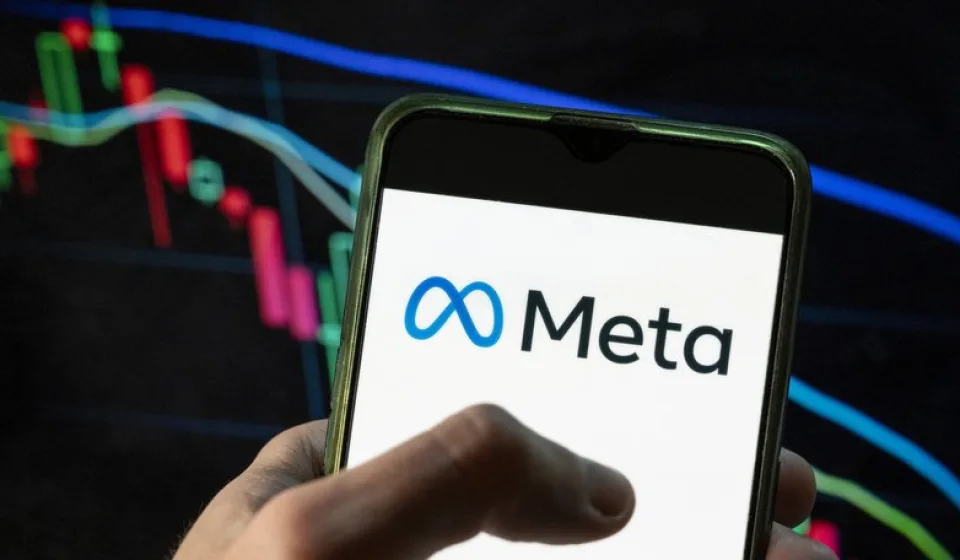In 2025, the digital advertising landscape is facing an unprecedented challenge — the rapid rise of Meta gambling ad scams. These deceptive campaigns, disguised as legitimate gambling promotions, have infiltrated social media platforms worldwide, targeting millions of users across diverse demographics.
Unlike traditional online fraud, Meta gambling ad scams exploit the precision of social media ad algorithms to reach vulnerable audiences. They promise quick profits, instant bonuses, or exclusive betting opportunities, only to trap users into fraudulent schemes. This growing crisis has not only shaken public trust in online advertising but also raised critical questions about Meta’s responsibility in regulating paid content on its platforms.
As global regulators, cybersecurity experts, and social networks scramble to contain the fallout, Meta gambling ad scams have become a symbol of how digital innovation can be weaponized — exposing the darker side of automated advertising in the modern internet era.
The Role of Social Media Platforms
Social media platforms have inadvertently become breeding grounds for these illicit advertisements. With billions of active users, these sites offer a unique opportunity for scammers. Key factors include:
- User Engagement: Engaging content can easily go viral.
- Anonymity: Scammers operate under the radar, making detection difficult.
- Ad Targeting: Sophisticated algorithms allow scammers to reach specific demographics.
As a result, many users become victims without realizing it.
Global Impact and Reach
The global scale of Meta gambling ad scams is staggering, affecting countless individuals across various demographics. Its ramifications extend beyond immediate financial losses, including:
| Impact | Description |
|---|---|
| Financial Losses | Individuals lose substantial amounts of money to scams. |
| Mental Health | Victims often face stress and anxiety due to financial hardships. |
| Regulatory Challenges | Governments struggle to monitor and regulate online gambling advertisements. |
Staying informed and alert is crucial to combating these nefarious schemes as they continue to proliferate worldwide.
Meta’s Involvement
Profit Margins from Illegal Advertising
Apacaff | In the current digital landscape, Meta gambling ad scams 2025 have raised significant concerns regarding profit margins generated through illicit advertising. Many advertisers have reportedly taken advantage of loopholes in Meta’s advertising system, leading to:
- Substantial profits with minimal oversight
- Exploitation of vulnerable users through deceptive practices
- Damage to Meta’s reputation as a reliable advertising platform
Allegations Against Meta
Meta faces increasing scrutiny as allegations surface linking the platform to numerous gambling advertisement scams. Accusations include:
- Allowing misleading ads that target minors and vulnerable individuals
- Failing to implement robust measures to combat fraudulent activities
- Neglecting to address user complaints effectively
Meta’s Response to Accusations
In light of these serious allegations, Meta has issued a response, emphasizing their commitment to ensuring a secure advertising environment. Their efforts include:
- Implementing stricter ad review processes
- Increased collaboration with regulatory agencies to monitor suspicious ads
- Enhancing user education on identifying fraudulent advertising practices
While the battle against Meta gambling ad scams 2025 continues, Meta is striving to restore trust and integrity within its advertising ecosystem. As this situation unfolds, vigilance remains paramount for both users and the platform itself.
Legal Framework Around Gambling Ads
Global Regulations Overview
The landscape of gambling advertisements is heavily influenced by varying legal standards worldwide. Governments apply distinct regulations to ensure public safety and prevent exploitation. Key points include:
- Many countries impose strict guidelines regarding the promotion of gambling, especially to minors.
- Regulatory bodies often require that all gambling ads are transparent and not misleading.
- International cooperation is crucial in addressing meta gambling ad scams in 2025.
Variation by Country
Gambling advertisement laws differ significantly from one nation to another. Here are some notable variations:
| Country | Regulation Type | Key Features |
|---|---|---|
| United States | State-Specific Laws | Varies widely; often includes age restrictions and disclaimers. |
| United Kingdom | Comprehensive Regulations | Requires all ads to be fair, not misleading, and to promote responsible gambling. |
| Australia | Federal and State Laws | Prohibits gambling ads during live sports broadcasts; strict on misleading content. |
Challenges in Enforcement
Despite the regulations, enforcing laws surrounding gambling advertisements presents numerous challenges:
- Evolving digital platforms make it difficult to monitor and regulate online ads effectively.
- Variability in enforcement measures can result in loopholes being exploited.
- The rise of meta gambling ad scams in 2025 complicates the landscape for consumers.
Economic Implications
Impact on the Gambling Industry
The emergence of Meta gambling ad scams 2025 has created significant disturbances within the gambling sector. These fraudulent advertisements lead to major repercussions for legitimate operators, including:
- Reduced trust among potential gamblers, diminishing user engagement
- Increased competition from scam platforms, making it harder for authentic businesses to thrive
- Potential regulatory scrutiny that affects the entire industry
As awareness grows about these scams, the gambling industry must adapt to restore its credibility.
Effects on Local Economies
The repercussions of Meta gambling ad scams 2025 extend beyond individual businesses, affecting local economies notably:
- Loss of employment opportunities as legitimate companies struggle
- Increased burden on law enforcement and social services dealing with the fallout
- Decreased tax revenues from a shrinking legal gambling market
The impact of these scams can hinder community development and economic stability.
Revenue Generation for Social Platforms
Despite the downsides, social platforms have reported a surge in revenue due to the presence of Meta gambling ad scams 2025. The implications include:
- Higher advertising revenues as scams often rely on paid promotions
- Greater focus on regulating ad content to protect users and preserve integrity
- Increased investment in security measures to combat fraudulent activities
Social media networks must balance maximizing profits while fostering a safe online environment for all users.
Public Perception of Gambling Ads
Growing Concerns Among Consumers
As the number of Meta gambling ad scams 2025 continues to rise, consumers are expressing significant apprehensions regarding the integrity of such advertisements. Many individuals are beginning to question:
- Are these ads promoting safe and responsible gambling?
- What measures are in place to protect vulnerable populations?
- How transparent is the information provided in these promotions?
This increasing skepticism has led to a broader dialogue about the accountability of advertisers in the gambling industry.
Opinion Polls and Studies
Recent surveys highlight a growing distrust among consumers towards gambling advertisements. Here are some key findings:
| Insight | Percentage |
|---|---|
| Consumers who feel gambling ads should be regulated | 78% |
| Individuals believing these ads target vulnerable groups | 65% |
| Those who are aware of scams related to gambling ads | 70% |
These statistics reflect a substantial need for reform in advertising practices within the gambling sector.
The Role of Media in Shaping Views
Media plays a crucial role in influencing public opinion regarding gambling ads. Through investigative reporting and awareness campaigns, crucial issues such as Meta gambling ad scams 2025 are brought to light, helping consumers make informed decisions. The portrayal of gambling in the media can either foster skepticism or contribute to normalization, making it essential for media outlets to approach the subject responsibly.
Case Studies
Successful Combined Efforts Against Illegal Ads
In 2025, a series of collaborative initiatives showed promising results in combating Meta gambling ad scams. Industry stakeholders, including regulatory bodies and tech companies, united to tackle this pervasive issue. Key highlights include:
- Joint awareness campaigns aimed at educating users about potential scams.
- Increased reporting tools for users to flag suspicious ads.
- Enhanced algorithms by Meta to identify and mitigate fraudulent ad placements.
Instances of Escalated Legal Actions
As the battle against Meta gambling ad scams 2025 intensified, several legal actions emerged. Notable cases involved:
- Major lawsuits filed against companies promoting counterfeit gambling opportunities.
- Penalties imposed on social media platforms for failure to enforce ad regulations.
- Government intervention in suspected fraudulent schemes, leading to numerous arrests.
Analysis of User Engagement with Illegal Ads
Research conducted in 2025 revealed alarming trends about user interactions with fraudulent advertisements:
| User Behavior | Percentage (% |
|---|---|
| Clicking on scams | 30% |
| Reporting suspicious ads | 15% |
| Participating in awareness programs | 10% |
This data underscores the critical need for both awareness and preventative measures in addressing the growing challenge of Meta gambling ad scams in 2025.
Future Directions
Predicted Trends in Illegal Gambling Ads
The landscape of online gambling advertising is evolving rapidly, particularly in light of the Meta gambling ad scams 2025. Here are some anticipated trends:
- An increase in deceptive advertising methods, making it harder for users to discern legitimate offers.
- Rise in targeted ads that exploit user data for fraudulent purposes.
- Greater engagement of social media influencers promoting questionable gambling sites.
Potential Regulatory Changes
With the surge of gambling ad scams, industry regulators are likely to implement several changes, such as:
- Stricter guidelines governing the portrayal of illegal gambling ads.
- Enhanced surveillance of social media platforms for compliance.
- Mandatory disclosures about the risks associated with gambling in advertisements.
Recommendations for Media Platforms
To combat the rise of Meta gambling ad scams 2025, media platforms should consider the following strategies:
- Establishing more rigorous vetting processes for advertisements.
- Implementing user reporting mechanisms to flag suspicious content.
- Conducting regular audits of advertising practices to ensure compliance with regulations.
Conclusion
Summary of Findings
In 2025, the rise of Meta gambling ad scams has garnered substantial attention, revealing troubling patterns in online advertising. Key discoveries include:
- Increase in fraudulent gambling advertisements targeting vulnerable individuals.
- Limited regulatory oversight leading to unchecked scam operations.
- Growing instances of consumers reporting financial losses due to deceptive practices.
Impact on Stakeholders
The proliferation of Meta gambling ad scams 2025 has significant repercussions for various stakeholders:
- Consumers: Individuals face the risk of losing money and compromising personal information.
- Meta Platforms: The reputation of Meta is at stake as they struggle to control advertising content.
- Regulators: Authorities are pressed to enhance accountability and enforcement measures.
Call to Action for Greater Accountability
It’s imperative for all involved to advocate for stronger regulations and actions against fraudulent advertisements. Here’s what you can do:
- Stay Informed: Educate yourself about online scams and warning signs.
- Report Scams: Immediately report any suspicious ads to Meta and relevant authorities.
- Support Advocacy: Join initiatives that promote transparency and accountability in online advertising.
By working together to combat Meta gambling ad scams 2025, we can create a safer digital environment for everyone.














